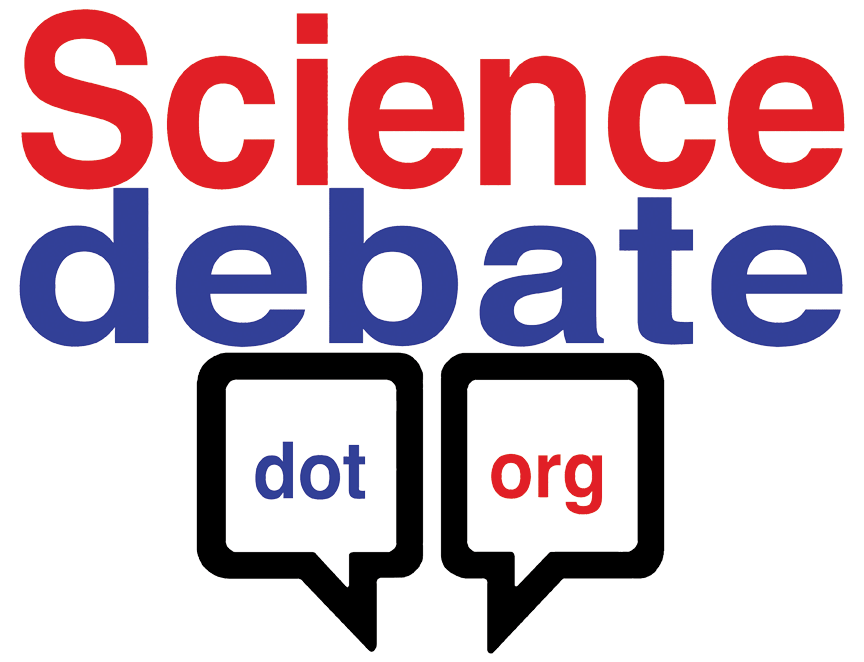 Here at NCSE, we tend to frown on formal staged debates, especially about science itself. But in this political season, there’s an exception to be made. Working with ScienceDebate, we and dozens of other scientific societies have developed a list of twenty pressing questions that everyone running to be the next president of the United States should answer before the election.
Here at NCSE, we tend to frown on formal staged debates, especially about science itself. But in this political season, there’s an exception to be made. Working with ScienceDebate, we and dozens of other scientific societies have developed a list of twenty pressing questions that everyone running to be the next president of the United States should answer before the election.
These aren’t gotchas, and it’s not meant as a pop quiz. The questions go to the heart of the challenges the next president will need to confront. One question addresses science education; another tackles climate change directly. The biodiversity crisis—intimately connected with evolution—merits a question, as does the challenge of developing new vaccines and promoting existing ones. Other questions probe how our next president will promote research, support innovation, protect science from political interference, shape national and global energy policy, and confront crises in public health and the environment.
Will we see Hillary Clinton, Donald Trump, Jill Stein, or Gary Johnson answering these questions on stage? Their campaigns have all been invited to send back written responses, and asked to agree to discuss their responses on stage. I’d encourage you to contact candidates and urge them to give America the science debate we deserve.
Nor should you stop there. One third of the Senate—thirty-four seats—and every seat in the House are up for election in November. These questions are just as relevant for those policymakers as for the next president, and there’s no reason you shouldn’t raise them in local debates and candidate forums. The same is true for gubernatorial elections and state legislatures. School boards may not have much influence over issues like immigration of scientists and engineers or ocean policy, but there’s no reason you shouldn’t borrow appropriate questions from this same list and pose them to every candidate on your ballot.
Science itself isn’t up for debate. But our leaders can and should explain how they’ll work to advance science, and how they’ll use science to guide their choices, while they’re in office.

